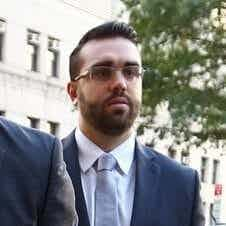Expert Witnesses Are a Necessary Prescription For Pill Mill Cases
The use of expert witnesses is critical in "Pill Mill" cases, where doctors face prosecution for allegedly overprescribing medication for profit.
Updated on
Recently, there has been an epidemic of physicians and their staff becoming embroiled in what are commonly referred to as “Pill Mill” cases. The general theory of these prosecutions is that the doctors involved have been over-prescribing unneeded or overly expensive medication in order to generate profits. In Pill Mill cases, the critical issue for the jury to decide is whether or not the doctors are prescribing appropriate medication. Whether or not prescriptions are appropriate is an inquiry best – and perhaps only – answered by physicians, doctors and other medical professionals which is why expert witnesses are almost always used in Pill Mill cases.
Pill Mill Cases
The traditional Pill Mill case centers upon accusations that a physician or his staff is prescribing unnecessary drugs to turn a big profit. “After a physical examination, albeit sometimes brief, the physician prescribes the patient medications; often a combination of Oxycodone, Roxicodone and Xanax or similar type medications.” When local or federal authorities investigate these cases, they often send in undercover agents as patients to try to catch the physician in the act.
Are you looking for an expert witness? Connect with a highly credentialed expert in any discipline.
In order to convict a medical doctor for unlawfully distributing prescription medication the government must prove beyond a reasonable doubt that the doctor “dispense[d] [the prescription drugs] other than for a legitimate medical purpose and not in the usual course of medical practice.” See, e.g., United States v. Mirilishvili, No. S2 14-cr-810, 2016 U.S. Dist. LEXIS 21268, at *2-3 (S.D.N.Y. Feb. 18, 2016). The doctor, as an affirmative defense, can argue that he was acting in “good faith” and that the doctor believed that the prescription medication he was prescribing was “in accordance with (what he reasonably believed to be) the standard of medical practice generally recognized and accepted in the United States.” Id.
Recent Cases Highlight the Critical Importance of Experts in Pill Mill Cases
On May 20, 2015, doctors John Patrick Couch and Xiulu Ruan were arrested by the FBI and DEA on drug and fraud charges for their alleged involvement in a “Pill Mill.” They were charged with the conspiracy to distribute controlled substances outside the usual course of professional practice and not for a legitimate medical purpose, as well as conspiracy to commit healthcare fraud. They were accused of taking kickbacks from a local pain center to unnecessarily send patients to the pain center with prescriptions in hand for pain killers such as Oxycodone, Morphine, Methadone and other drugs. The Indictment also alleged that the doctors routinely ordered extremely expensive secondary urine drug tests under the false pretense that the tests were necessary. It also alleged that the doctors used fraudulent “up-coding,” wherein a patient service is performed by a nurse or other staff member but is fraudulently billed under the doctors’ national provider identifier numbers – allowing doctors to be reimbursed at a higher rate.
At least five expert witnesses were slotted to testify in the case. Before trial was underway, there were hotly litigated issues surrounding the use of expert witnesses, including the Court ordering the parties to provide supplemental expert disclosures and various motions in limine of certain opinions of the experts who will testify. In this case, undercover agents sought and received prescription medication from the defendants. Some of the issues that the experts were called to testify about was whether or not the physicians and their staff properly examined the undercover agent and whether the prescriptions were given in good faith.
This case, although highly publicized, is not unprecedented. There have been a number of Pill Mill prosecutions where experts were highly utilized. In another high profile Pill Mill case that was referred to as a “Doctor vs. Doctor” case, both the defense and the government’s expert witness testimony were directly opposed to one another on the critical issue of whether the prescriptions given were medically necessary and appropriate. Ultimately, the doctor was convicted and sentenced to thirty years in prison. In a similar case, stiff sentences were handed out to two doctors who had “one of the nation’s leading experts on pain management” testify that the doctors were not responsible for the charges of over-prescribing pain pills. In yet another Pill Mill case, a Delaware doctor was convicted after the jury heard testimony from an expert witness that the doctor’s “scant record-keeping and prescription habits were ‘disgraceful’ and ‘irresponsible, and that he allegedly doled out narotics to patients ‘willy-nilly.’” It has become clear that expert witness testimony is among the most crucial pieces of evidence in Pill Mill cases.
How to Use Experts in Pill Mill Cases
Experts should be called upon from the investigative stage to verdict in Pill Mill cases. One of the most important tasks is to review the patient charts and files of those who have been prescribed medication that the government claims is fraudulent. Whether or not the patient files are adequate and whether the prescriptions were appropriately administered in “good faith” and with medical necessity are not issues taught in law schools and a qualified medical expert is necessary to properly understand the review of the patient charts. Other issues that should be answered by a qualified expert are whether the appropriate referrals were made, whether the physician or his assistant conducted an adequate physical examination and whether or not the physician appropriately warned patients about not sharing or diverting medication and side effects. Pain management experts and pharmacologists are the experts that are most typically used in these cases. The expert must be prepared to testify about the contents of the patient files and be able to competently testify that the physician was operating in “good faith” and, at the very least, the physician met the minimum level of care required by the regulations and laws of the jurisdiction. Ultimately, “experts with full knowledge of the applicable regulations and laws of your jurisdiction as well as the specific content of the patient charts, are a key to victory for either party.”
As recent history has indicated, Pill Mill trials are dangerous for physicians and doctors. Serious sentences have been imposed after guilty verdicts and the FBI, DEA and DOJ as well as local criminal authorities have been very active in investigating Pill Mills, including the consistent use of undercover agents. For accused physicians and the government authorities prosecuting them, the proper use of expert witnesses is of tantamount importance to the question of whether the doctor has properly prescribed the medication at issue and was acting in “good faith.” From reviewing the patient files, to analyzing undercover surveillance videos of physical examinations, to actually testifying at trial, qualified experts are a necessary member of any litigation team in Pill Mill trials and investigations.
Joseph B. Evans focuses his practice on the defense of Federal and New York State criminal and regulatory inquiries and the prosecution of complex litigation matters. He is an associate at Gage Spencer & Fleming LLP, a trial law firm well known for defending the nation’s most high-profile white-collar criminal cases from inception to verdict.
About the author
Joseph B. Evans, J.D.
Joseph B. Evans, J.D., is a defense attorney who represents government officials and senior executives in high-profile white-collar criminal matters, regulatory matters, and commercial litigation.
Subscribe to our newsletter
Join our newsletter to stay up to date on legal news, insights and product updates from Expert Institute.
Sign up nowA Sample Voir Dire: How To Qualify An Expert Witness
Download free white paperChallenging Opposing Experts: Advanced Research Techniques
Download free white paperCross Examining Expert Witnesses: The Ultimate Guide
Download free white paper
Subscribe to our newsletter
Join our newsletter to stay up to date on legal news, insights and product updates from Expert Institute.



